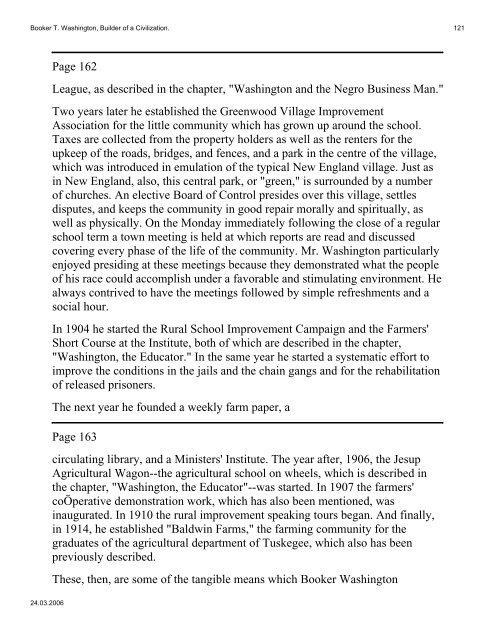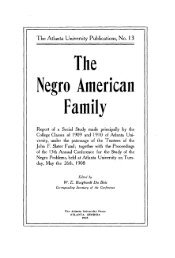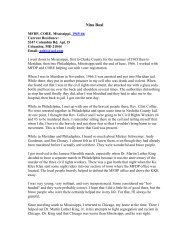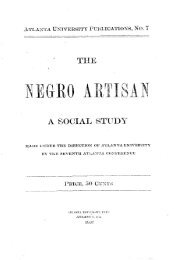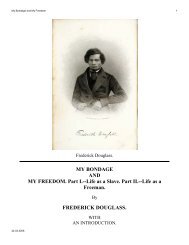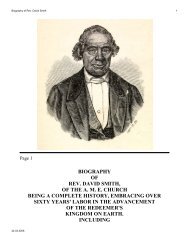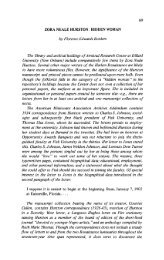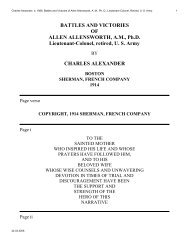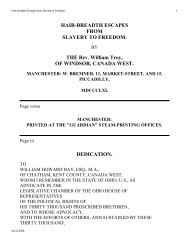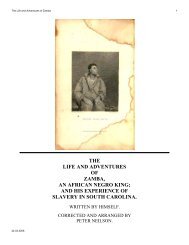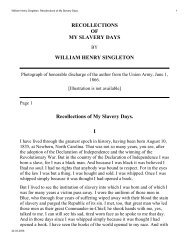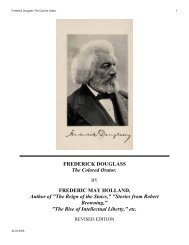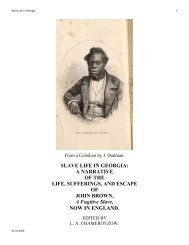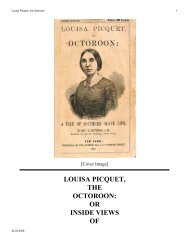Booker T. Washington, Builder o - African American History
Booker T. Washington, Builder o - African American History
Booker T. Washington, Builder o - African American History
Create successful ePaper yourself
Turn your PDF publications into a flip-book with our unique Google optimized e-Paper software.
<strong>Booker</strong> T. <strong>Washington</strong>, <strong>Builder</strong> of a Civilization. 121<br />
Page 162<br />
League, as described in the chapter, "<strong>Washington</strong> and the Negro Business Man."<br />
Two years later he established the Greenwood Village Improvement<br />
Association for the little community which has grown up around the school.<br />
Taxes are collected from the property holders as well as the renters for the<br />
upkeep of the roads, bridges, and fences, and a park in the centre of the village,<br />
which was introduced in emulation of the typical New England village. Just as<br />
in New England, also, this central park, or "green," is surrounded by a number<br />
of churches. An elective Board of Control presides over this village, settles<br />
disputes, and keeps the community in good repair morally and spiritually, as<br />
well as physically. On the Monday immediately following the close of a regular<br />
school term a town meeting is held at which reports are read and discussed<br />
covering every phase of the life of the community. Mr. <strong>Washington</strong> particularly<br />
enjoyed presiding at these meetings because they demonstrated what the people<br />
of his race could accomplish under a favorable and stimulating environment. He<br />
always contrived to have the meetings followed by simple refreshments and a<br />
social hour.<br />
In 1904 he started the Rural School Improvement Campaign and the Farmers'<br />
Short Course at the Institute, both of which are described in the chapter,<br />
"<strong>Washington</strong>, the Educator." In the same year he started a systematic effort to<br />
improve the conditions in the jails and the chain gangs and for the rehabilitation<br />
of released prisoners.<br />
The next year he founded a weekly farm paper, a<br />
Page 163<br />
circulating library, and a Ministers' Institute. The year after, 1906, the Jesup<br />
Agricultural Wagon--the agricultural school on wheels, which is described in<br />
the chapter, "<strong>Washington</strong>, the Educator"--was started. In 1907 the farmers'<br />
coÖperative demonstration work, which has also been mentioned, was<br />
inaugurated. In 1910 the rural improvement speaking tours began. And finally,<br />
in 1914, he established "Baldwin Farms," the farming community for the<br />
graduates of the agricultural department of Tuskegee, which also has been<br />
previously described.<br />
These, then, are some of the tangible means which <strong>Booker</strong> <strong>Washington</strong><br />
24.03.2006


